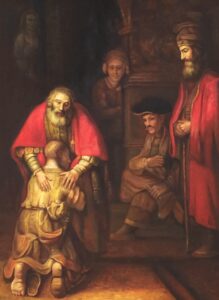Lent: Prophetic and Poetic Paths—Part 1
Two of our final two portraits for Lent will be presented for the diversity they bring in their understanding and practice of Lent. Walter Brueggeman is first and foremost a professor of Old Testament studies. Kathleen Norris is a poet and spiritual writer, both of whom we need to listen to. I have read nearly all their published works, so, I’ll call them by name: Walter teaches us that Lent is misunderstood as a season for giving up. He calls us to a practice of taking on. I first used his stellar book, The Prophetic Imagination, as the text for undergrads at a college in South Dakota.
A professor’s thoughts on Lent
Walter teaches us that Lent is not just about giving up things (like fasting or self-denial) but also about taking on—practices that align with God’s justice and renewal. He emphasizes that Lent is a time for transformation—moving beyond personal sacrifice to actively engaging in acts of mercy, justice, and prophetic imagination. He turns our ears to Jeremiah, the prophet, who spoke fiercely against being neutral about God and God’s ways.
Jeremiah gives witness to the real presence of God who has capacity to bring newness to otherwise broken social realities marked by violence, division, animosity, ethnic hatred, and hostile political partisanship.
Read More







